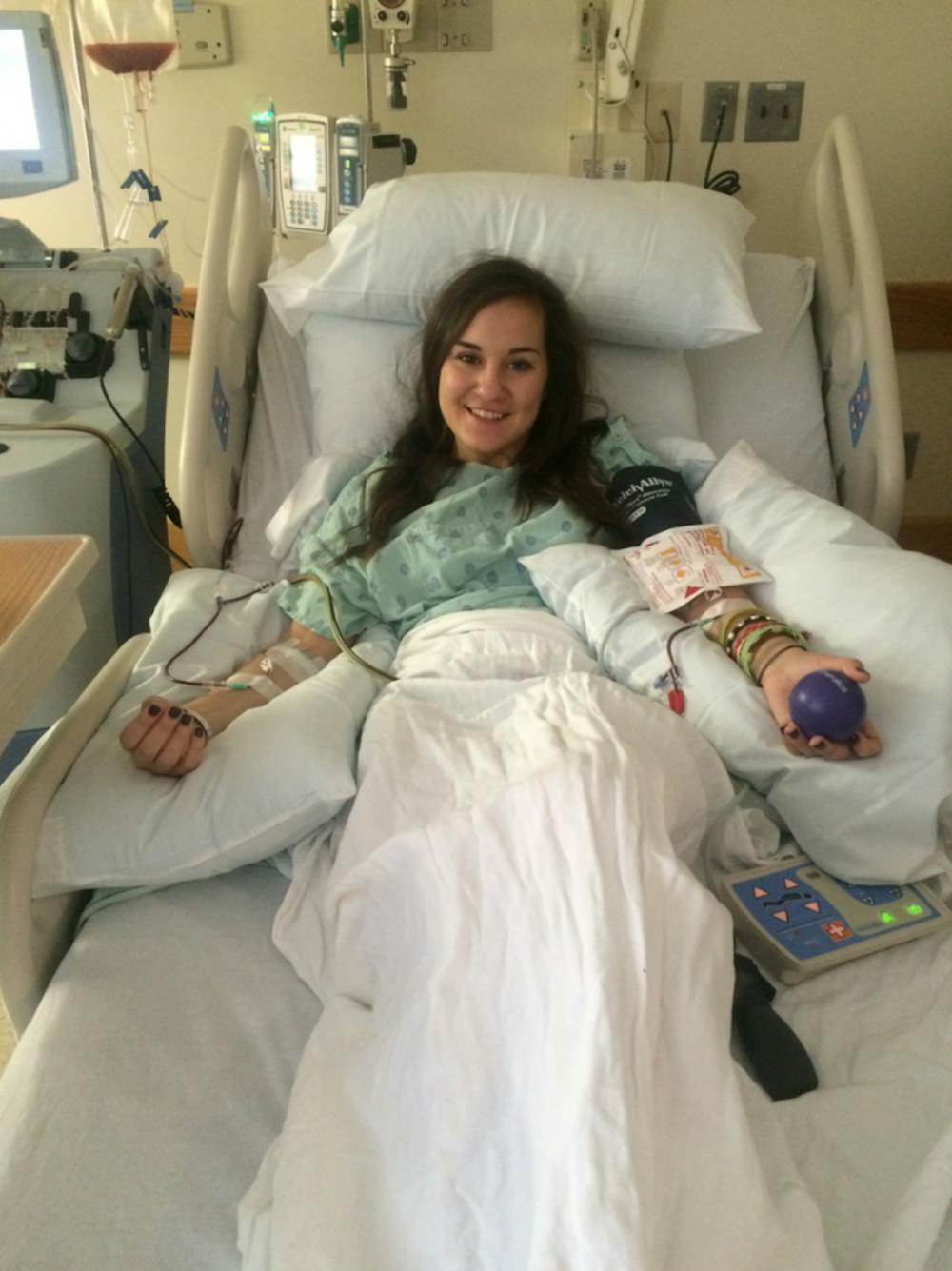Facts about donating bone marrow:
- Donors between the age of 18-44 have the best chance of transplant success.
- Patients are more likely to match with donors who share their ancestry.
- There are rarely any long-term effects from donating bone marrow.
- Donating bone marrow does not affect the donor's immune system. Only 1-5 percent of marrow is necessary for donation.
- Donors are reimbursed for any medical fees that come with donating marrow.
- It is possible to donate marrow for someone in a different country. The rules vary from country to country and most donors aren't allowed contact with the patient until a year or more after the transplant.
(via bethematch.org)
When a person registers to donate bone marrow, they have a 1 in 540 chance of being matched, according to Be the Match, an organization that matches donors with patients.
For Alayna Troha, the odds were in her favor.
Troha, a sophomore studying social work and interpersonal relations, registered with Be the Match when the Ball State chapter gave a presentation to her sorority.
“The video was touching,” Troha said. “I registered thinking I wouldn’t be [matched].”
Registration involves filling out a packet and getting a swab of cells from the person’s cheek. In June, less than a month after she registered, Troha received word from Be the Match, telling her she was a possible match.
“They find a lot of people who could possibly match with a single patient. They have to do bloodwork before knowing who will be the best match. There’s a lot of factors that go into [being a match],” she said.
Factors that determine a match include ethnicity, race, age and human leukocyte antigen tissue type (HLA tissue includes a certain protein marker used to determine if those on the registry can be matched with patients).
In October, Troha was confirmed as the best match for the patient. She donated her bone marrow on Jan. 13.
There are two ways to donate; either through surgery or peripheral blood stem cell (PBSC). Because surgery is normally only done when the patient is in critical condition, Troha donated through PBSC.
For five days before her donation, she received shots of filgrastim twice a day. Filgrastim is a drug that increases the number of blood stem cells in the bloodstream, according to Be the Match.
On the day of the donation, Troha sat in the hospital with an I.V. in each arm. The bone marrow left her right arm and passed through a machine collecting the blood stem cells. The remaining blood was then put back into her right arm.
“I couldn’t move at all,” Troha said. “My parents had to feed me.”
Alexis McKenzie, the president of Ball State’s Be the Match chapter and sophomore legal studies major, went to visit Troha in the hospital. She said it has been a “life-changing experience” knowing Troha matched because of her presentation.
“She listened and my word got to her,” McKenzie said. “I didn’t know her before she matched; [now] I consider her a very close friend of mine. My life will never be the same, honestly.”
McKenzie and Caitlynn Elkins, vice president of the Be the Match chapter and sophomore telecommunications major, have been focusing on getting more people involved with Be the Match.
“We’ve been trying to get the organization more publicity,” Elkins said. “People can do something even if they can’t be on the registry due to health concerns.”
This year, Be the Match is partnering with Riley Dance Marathon in order to have more of a presence on campus.
As for Troha, she said if matched again she “wouldn’t even hesitate” to say yes to donating.
“It was definitely worth it,” she said.





